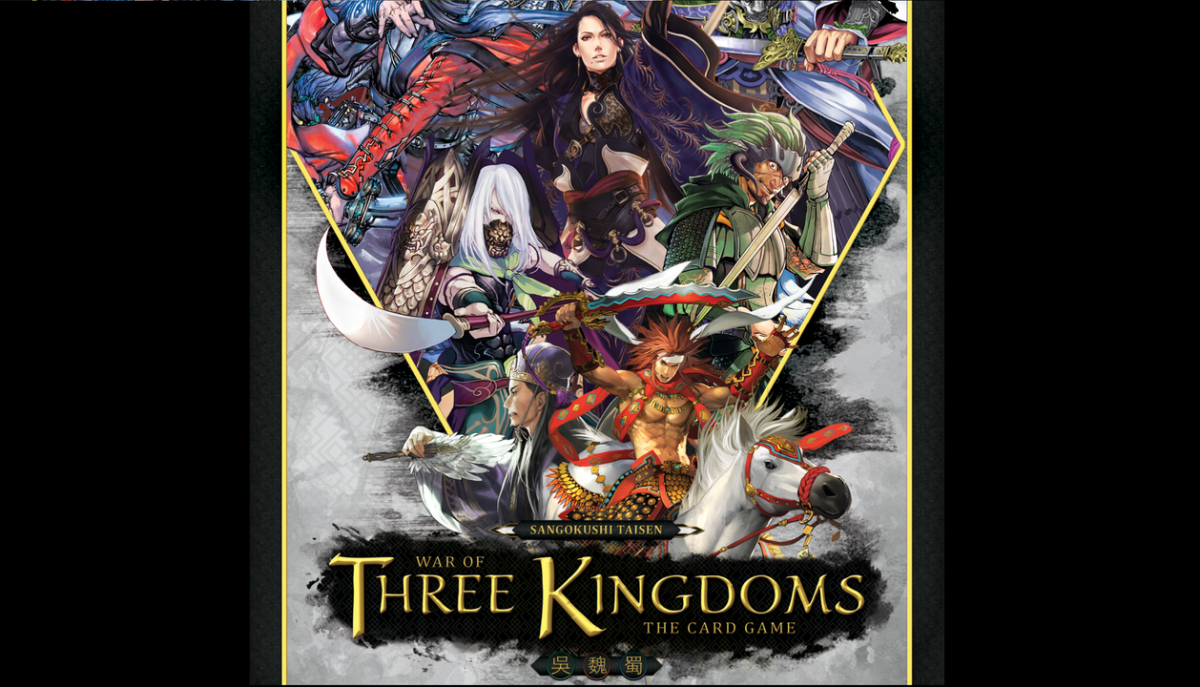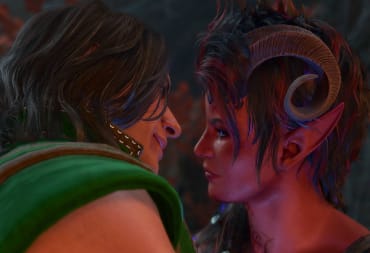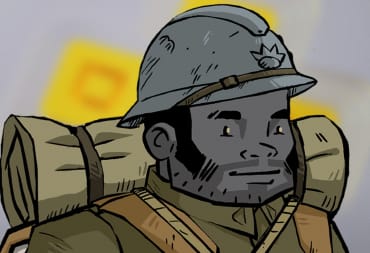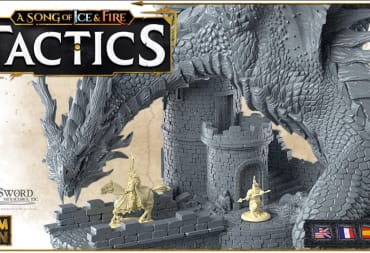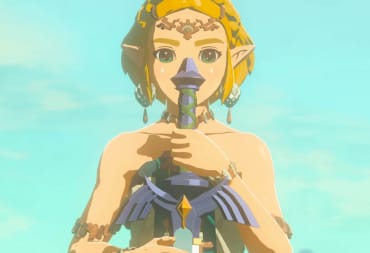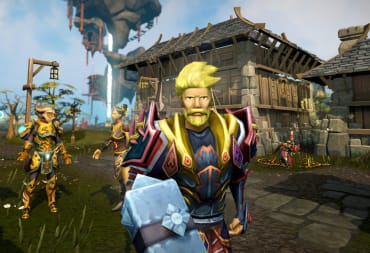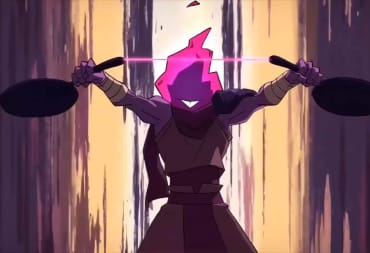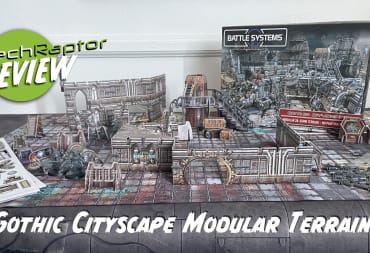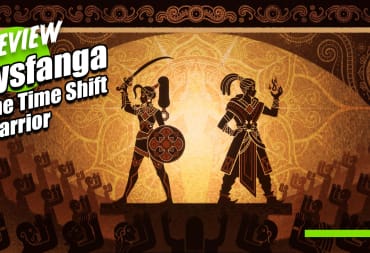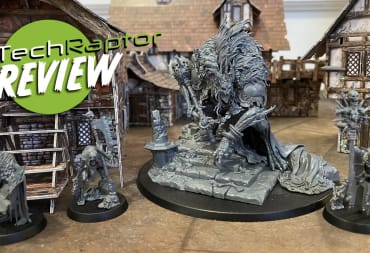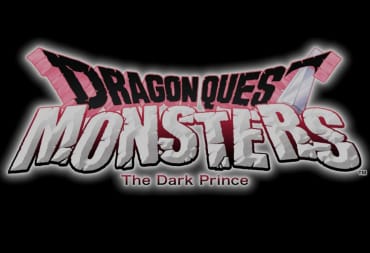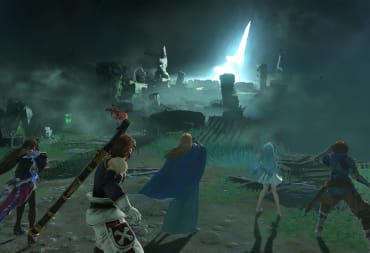I used to be a Magic: The Gathering fanatic. Cracking packs, chasing rares, drafting at every opportunity ... I was an absolute fiend. Over time the game lost its luster for me though, especially with the pace at which new cards released, obsoleting scores of cards that I'd spent so much time and effort on, effectively always moving more and more of my collection into the "no longer playable" pile. I still get the craving for a card-em-up from time to time, and while I still keep a couple of decks around to play the odd game here and there, it's kind of a pain to get back into the headspace that I was in when I built the deck, and an even bigger pain to try to find two decks that are evenly matched.
Enter War of Three Kingdoms The Card Game. It scratches that card shuffling, casting, and attacking itch that hits me, while doing so with a pre-defined set of cards that are split across three factions that are varied enough to feel unique but also seem to be balanced enough that one can't quite rise to the top every time. It also does away with some of the most annoying little quirks (I'm looking at you mana-screw) that can bog games like Magic down.
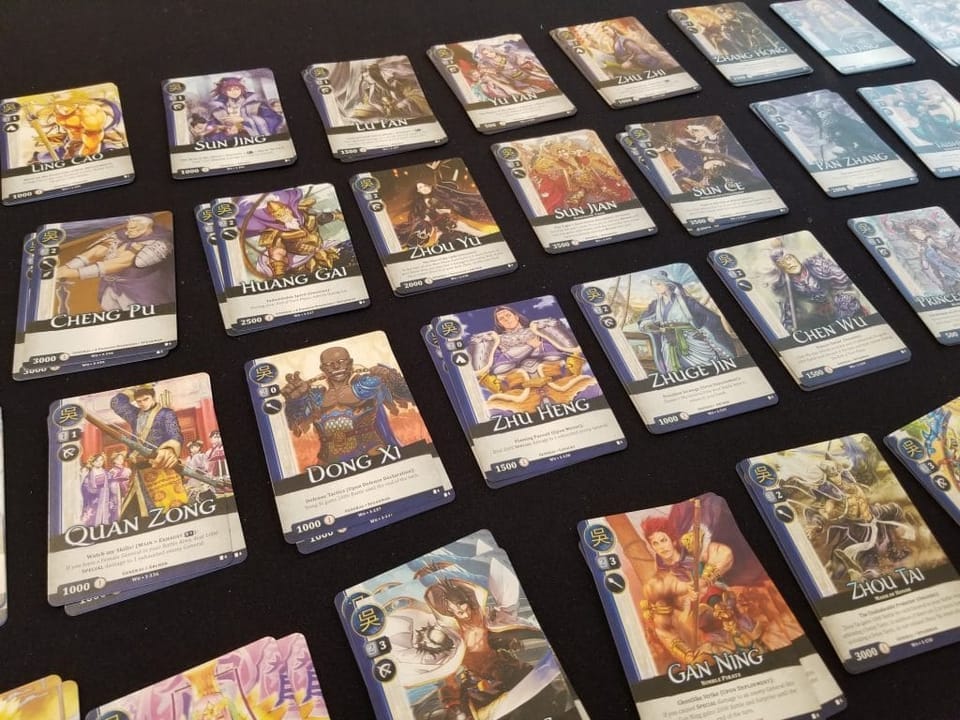
War of Three Kingdoms is based on the Sega video games of the same name, or Sangokushi Taisen if you are feeling extra weeaboo about it, and pits two players against each other in a battle to see who can be the first to knock down their opponent's wall and deal them one final deathblow. Whether you are controlling Wei, Wu, or Shu, you and one other player will be duking it out for dominance using some of the most well know not-quite-historically accurate figures from the Three Kingdoms setting.
The game comes with more than enough cards to slap a few decks together to begin vying for dominance of ancient China. Although, if you are willing to dig a little deeper, there is a great layer of strategy in simply deciding how to build your deck that you can either dig in to with gusto or ignore as you see fit.
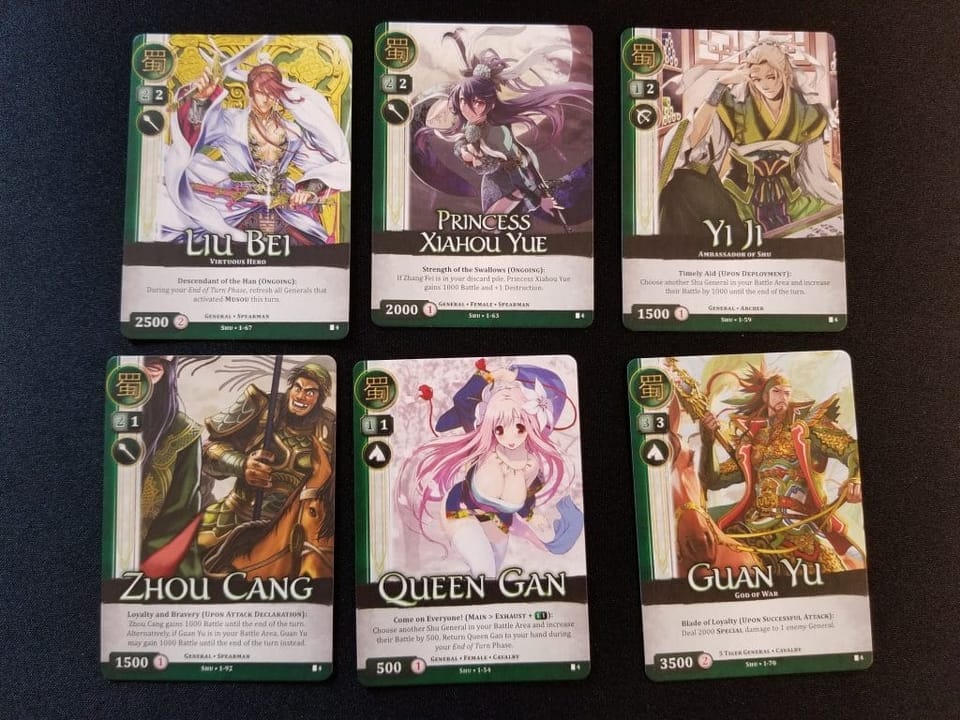
War of Three Kingdoms comes with copies of every card available, which is more than enough to tweak and fiddle with different deck combinations for each faction and borders on ludicrous if you mix and match the factions together. While you do need to buy two copies of the game to get up to the allowed limit for each card (most allow 4 copies in a deck, while some limit you to 2) there are myriad options even if you stick with just one copy.
While I personally prefer to just build a few decks and hash it out, the option to sit down across from your opponent and try to put together a deck based on their chosen faction adds an entirely different layer of strategy to this game. If you have a dedicated opponent that you can set an entire evening aside with to play, then you could have some truly epic battles that begin as soon as you start choosing cards for the deck you are going to take into battle against them. In the plethora of cards are numerous obvious and devious combinations that you can thread together and, while it's easier to set those combos up if you do splurge on a second copy, there is still plenty of strategy and combo-stomping to be had either way.
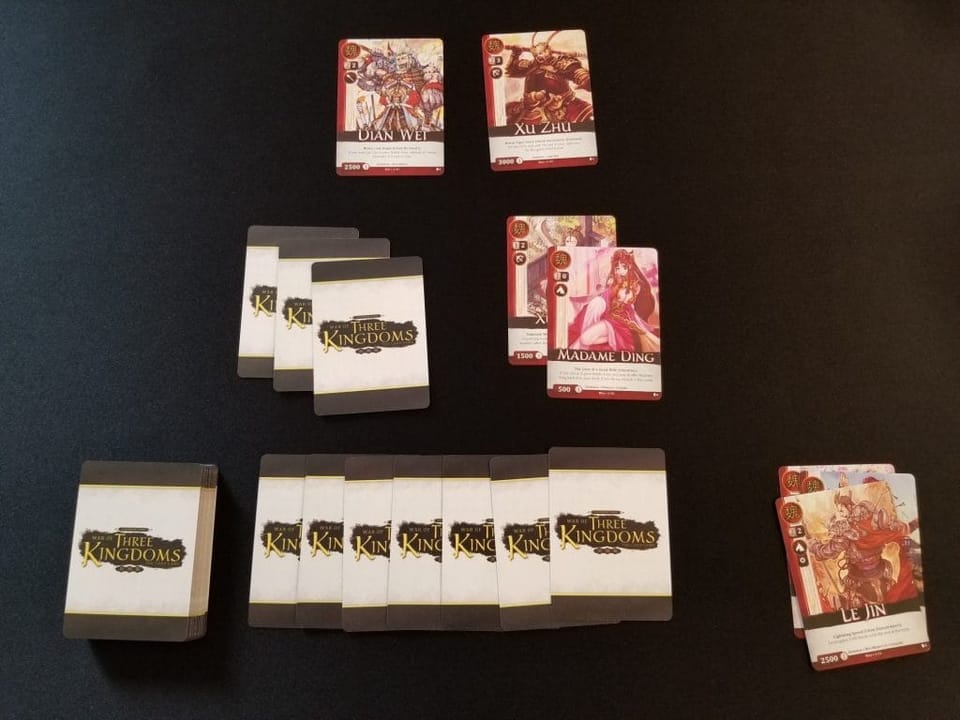
One of my favorite things about this game is how resources are handled. Every turn you can play a single card on the table either face down as a generic resource or face up as a resource matching the color (read: faction) of that card. When you play a card face down, you also get to draw a card from your deck, and when you have a named card face up on the battlefield (either in battle or as a resource) you can't play any more copies of that card face up. Not only does this prevent you from ever being screwed for resources, but it makes you really think about the cards that you play. Do you play it face down to draw a card, keeping the knowledge of what you played hidden from your opponent? Or do you play it face up, giving you a valuable and necessary colored resource while simultaneously showing your opponent what they won't be facing in battle? It's a great system that feels both strategic and rewarding.
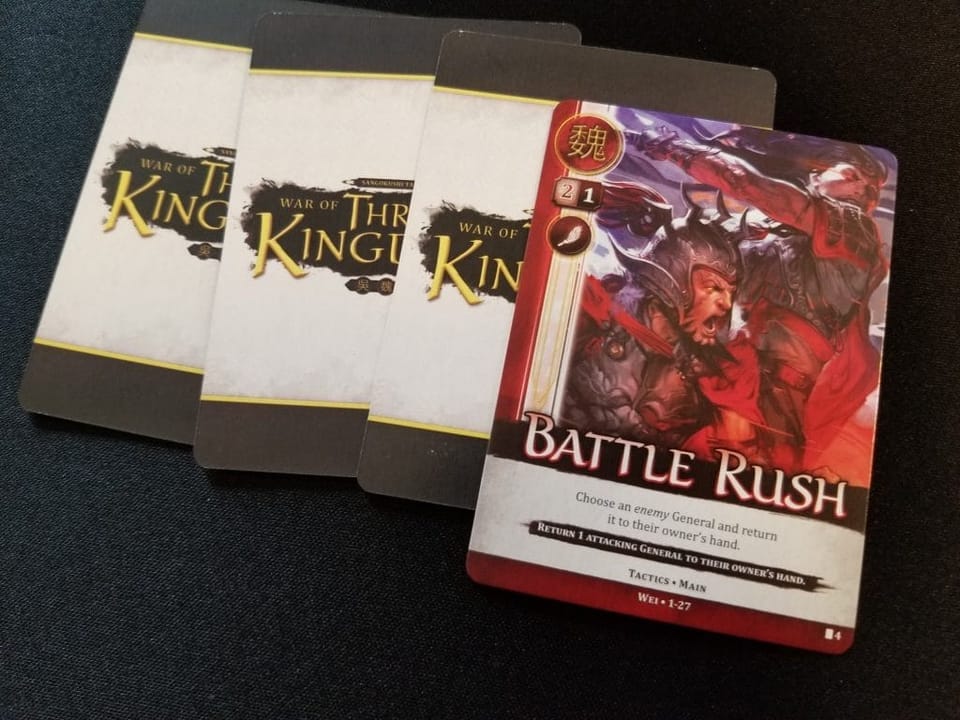
During your battles, there are some Tactics Cards that you can put into your deck to help flesh out your strategy, but most of your deck will be composed of Generals, and it pays to have multiple copies of each General in your deck. During combat, you are only allowed to attack with a single General at a time. After a successful attack, if your General is still alive and you have a duplicate copy in your hand, you can discard that copy to active Musou, a powerful ability that can refresh your General, heal them, let them attack again and, for certain cards, trigger insanely powerful abilities. The threat of Musou is another reason that it's important to consider what cards you play face up and a reason that you need to play attention to what cards your opponent has played as well.
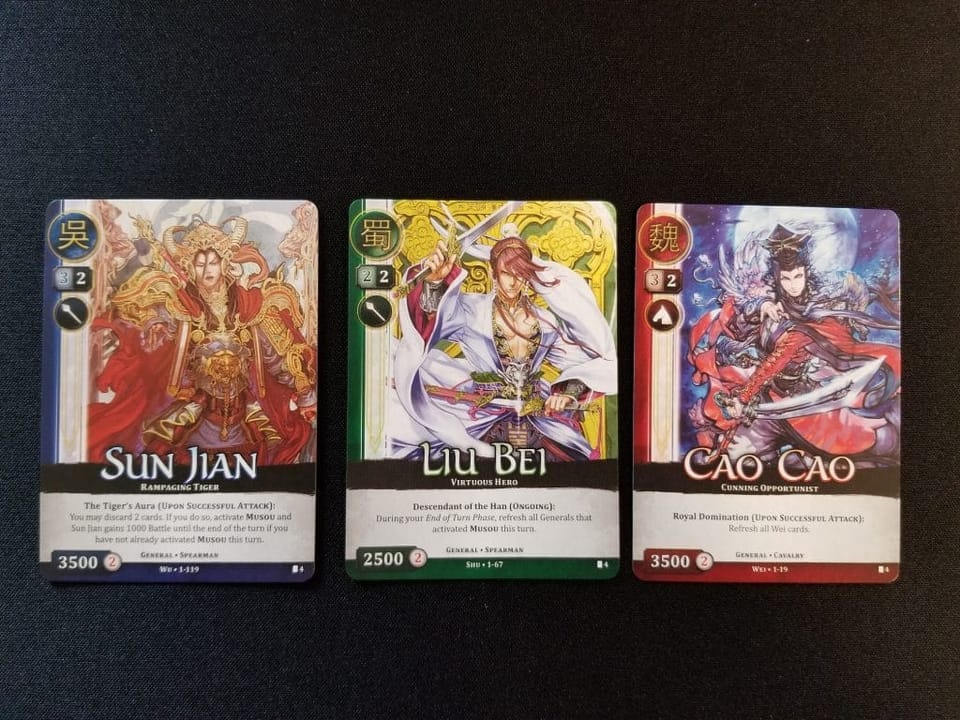
To win a game of Three Kingdoms, you need to break down your opponent's wall, which is made up of 7 cards played from the top of your deck at random at the start of the game, and then deal one final blow to them to knock them out of the game. While you can't choose the cards that go to your wall, you can fill your deck with plenty of cards that become traps once they are in your wall. When a wall is damaged, the card or cards go to your discard pile, and any traps that are triggered immediately take effect. The traps usually aren't enough to turn the tide of battle on their own, but they still add another layer of depth to the game.
The bottom line:
War of Three Kingdoms the Card Game is easy to learn, easy to play, and quite a lot of fun. Even though you need two copies to get a full set of cards (if you want to be able to put the maximum number of any one card in a deck) every card in the game is offered in each box, and there is enough variety of cards that each faction deck can be built with multiple different strategies in mind. Even if you don't lean heavily on the deck-building aspect of the game and simply form a few static decks to play with, the game still offers a fun mix of strategy, card-play, and balance.
One of the best aspects of this game is that every single card can be used as a resource, which both keeps you from being screwed over due to a lack of resources and makes you really think about the cards that you want to use as resources, and whether you should play them face down, or face up.
All told, War of Three Kingdoms does an excellent job of scratching the card-battler itch while managing to avoid bloat and some of the other small annoyances that collectible card games have. If you like card-battlers, or are a fan of the Three Kingdoms setting then there is a lot to like about War of Three Kingdoms.
Get this game if:
You like card-battler games, but dislike the collectible aspect of most of them.
You are a Three Kingdoms fan.
You like to tweak and tinker with decklists, but don't want to have to deal with a massive mountain of cards.
You want a standalone game with well balanced factions.
Avoid this game if:
You prefer cracking packs and going after chase rares.
You dislike card-battle games.
Where's the score? The TechRaptor tabletop team has decided that the content of our tabletop reviews is more important than an arbitrary numbered score. We feel that our critique and explanation thereof is more important than a static score, and all relevant information relating to a game, and whether it is worth your gaming dollar, is included in the body of our reviews.
The copy of War of Three Kingdoms The Card Game was provided by S7 Games.
Review Summary
Have a tip, or want to point out something we missed? Leave a Comment or e-mail us at tips@techraptor.net
